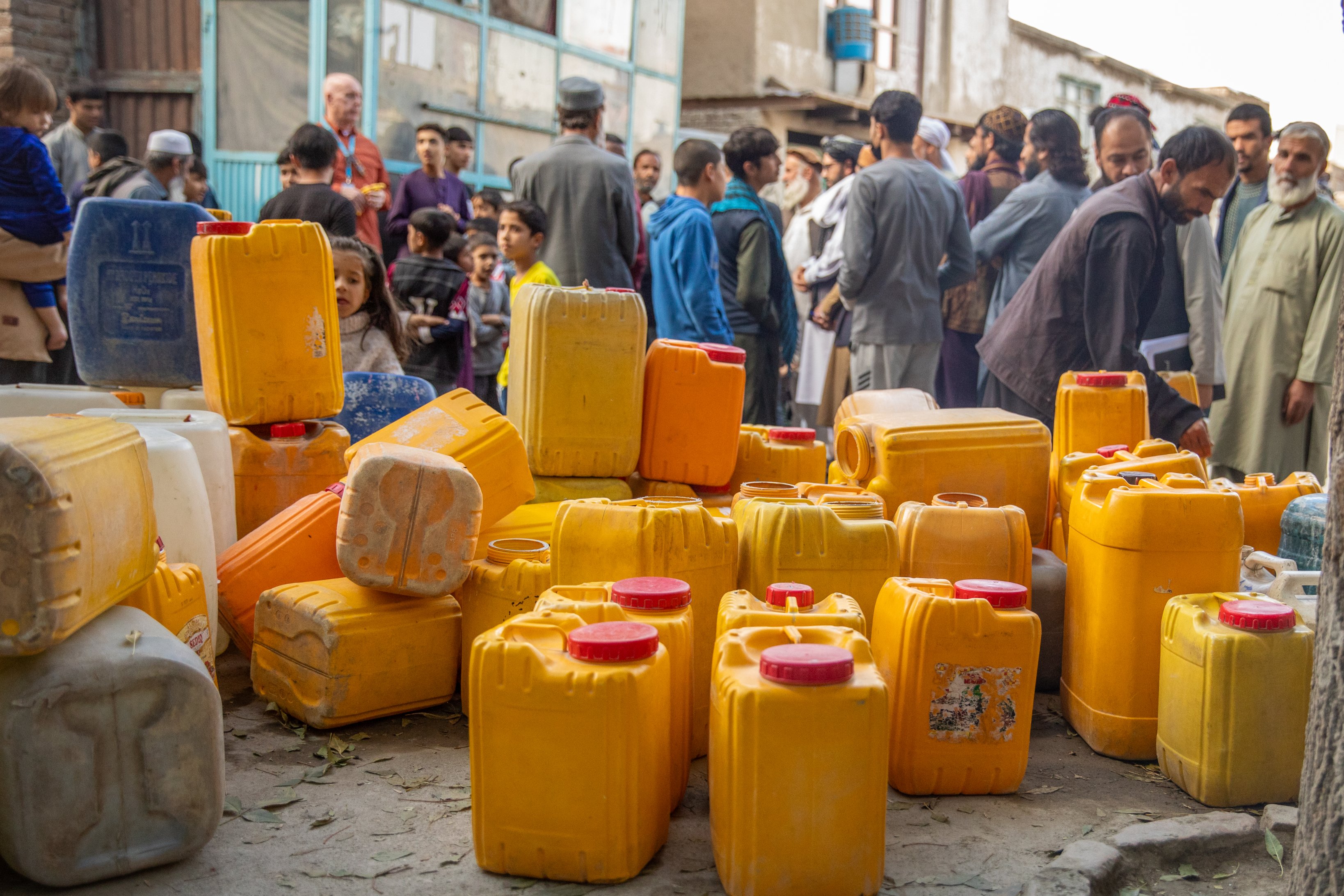
Newsroom
A worsening water crisis in Afghanistan’s capital is pushing families to the brink, as rapid population growth, climate change, and decades of groundwater overuse drain Kabul’s fragile water supply, aid groups warn.
Residents like 42-year-old Raheela say they struggle daily to secure enough water, often paying steep prices for small quantities. “There’s no drinking water here,” she said. “It affects every part of our lives.”
According to Mercy Corps, Kabul could become the first modern capital to run dry without urgent action. The crisis, fueled by a ballooning population that has more than doubled in three decades, is compounded by shifts in precipitation and groundwater depletion. The city now extracts tens of millions more cubic meters of groundwater annually than can be naturally replenished, with water tables dropping by up to 30 meters in the past decade.
Contaminated water is worsening public health. Up to 80% of Kabul’s groundwater is tainted by pollution and pit latrines, leading to widespread illness. “Sometimes just brushing your teeth with this water is enough to fall ill,” said civil servant Sayed Hamed.
For many, water comes from costly tanker deliveries or long treks to communal sources. Some children skip school to help collect water, and women face added risks under Taliban rules requiring male escorts.
“We’re looking at a dangerous combination,” said Marianna Von Zahn, Mercy Corps’ program director. “Local systems are breaking down, aid is drying up, and everyday people are suffering.”
Humanitarian funding has plummeted, with only $8 million of the $264 million needed for water and sanitation secured so far this year. As conditions deteriorate, many families face an impossible choice: stay and endure, or leave with nowhere to go.
“If this continues,” Raheela said, “we’ll have no choice but to leave again. But where would we go?”
With information from CNN.

Photo courtesy of @UNICEFAfg X































